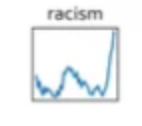35%, 3%, whatever…
"Straight talk on the FDA’s tumultuous weekend — and new questions about its independence", Stat 8/24/2020:
Matt Herper: So for those just back from a tour of Jupiter’s moons, last night the FDA granted emergency use authorization of convalescent plasma to treat patients with Covid-19. Trump characterized the decision as a major breakthrough. FDA Commissioner Stephen Hahn, who joined him at a news conference to announce the decision, backed him up — but he also misspoke, claiming that giving plasma would help 35 out of 100 people treated.
Adam Feuerstein: Misspoke is being kind. Hahn grossly mischaracterized the benefit of convalescent plasma on Sunday night. I’ll just quote him here: “A 35% improvement in survival is a pretty substantial clinical benefit. What that means is — and if the data continue to pan out — 100 people who are sick with Covid-19, 35 would have been saved because of the administration of plasma.” […]
Matt: That number should be at best 5 out of 100 people. To my eye, it’s more like 3 out of 100 people. And all that is from subgroups of an observational study, so it should be taken with a grain of salt.
Researchers didn’t compare patients who got plasma to a control group. They compared those who got the drug early to those who got it late, and between high levels of antibodies in the plasma and low ones. For the main subset in the study, which was led by the Mayo Clinic, mortality at seven days was 11% for those who got lots of antibodies, versus 14% for those who got few. That’s three out of 100 — again, with a grain of salt.
Read the rest of this entry »



